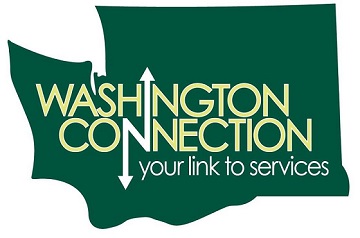DSHS offers several programs to help our customers secure employment.
We work with providers in several different programs. Please visit the pages for each program, listed below, to find more information.
Basic Food Employment & Training (BFET)
What is the Basic Food Employment and Training Program?
The Basic Food Employment and Training program helps people who get Basic Food assistance (also called SNAP) to gain skills, training and work experience. Services are available from all Washington state community and technical colleges as well as many Community-Based Organizations including the Employment Security Department.
When you are enrolled in BFET, you get a case manager who can help with:
- Guided job search.
- Job search training that enhances resumes and interview skills.
- General education including GED.
- Basic skills.
- Adult Basic Education.
- Life skills.
- Help learning English.
- Training that leads to a certificate in a specific industry.
- Paid and unpaid apprenticeships.
- Internships.
- Pre-apprenticeships.
- On-the-job training.
- Job coaching.
BFET providers may also offer support services to help you participate in the program, like costs for transportation, clothing, tuition, state identification and training fees.
If you get federal food benefits and want a BFET referral, please call the customer contact center at 877-501-2233, or use our Find a Provider tool to contact a BFET provider about their BFET program. For more information, please see our Eligibility page.
Able-Bodied Adults Without Dependents
Federal regulations require certain people who receive Basic Food assistance to meet work requirements to continue receiving benefits. These requirements affect people identified as Able-Bodied Adults Without Dependents. In Washington, people who meet this designation and live in non-exempt counties must work or participate in work-related activities if they are not working or do not have approved work exemptions.
People who meet ABAWD criteria are:
- Aged 18 through 54.
- Able to work and without physical or mental disabilities, injuries or health issues that prevent them from working.
- Not receiving food benefits for minor children in their household.
- Not reporting any exemptions and are not identified as an exempt work registrant.
A person who meets ABAWD criteria and does not have a work exemption may have a three-month time limit to receive benefits unless they are:
- Employed an average of 20+ hours per week (80 hours per month).
- Volunteering in the community through Workfare.
- Participating in a state-approved employment and training program.
For more information about programs that meet ABAWD participation requirements, please visit the pages for:
ORIA Employment and Training Programs
The Limited English Proficiency Pathway program assists people who receive Temporary Assistance for Needy Families and Refugee Cash Assistance with employment and educational services.
The ORIA Basic Food Employment and Training program provides employment and educational services to federal Basic Food recipients who are not receiving Temporary Assistance for Needy Families or Refugee Cash Assistance.
Food Assistance Program Employment and Training provides employment readiness opportunities to State Food Assistance recipients.
The Career Ladder for Educated and/or Vocationally Experienced Refugees program, better known as CLEVER, assists highly educated and/or skilled refugees with re-entering their career field in the United States.
Employment Pipeline
What is the Employment Pipeline?
Navigating education, employment and training opportunities can be overwhelming. Let Employment Pipeline guide you on your journey to success. Employment Pipeline is designed to connect DSHS customers with the resources and support they need to achieve their employment and training goals.
The Employment Pipeline offers services such as:
- Voluntary enrollment: Join the program at your convenience.
- Personalized assistance: Work with Navigators to access a wide range of DSHS services, supports and benefits.
- Regional availability: Find Employment Pipeline services in select counties across the state.

